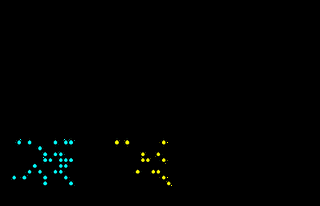Biological Cloning of HIV-1
Materials:
Equipment
Single channel pipette: 0.5-10 µl, 10-100 µl, 200-1000 µl, Eppendorf
Multichannel pipette: 5-50 µl, 50-300 µl, Finnpipette, Labsystems
Burker Bright-line Count-chamber, Labor Optik
Adjustable waterbath (37°C)
Rotixa/RP centrifuge, Hettich
37°C/5% CO2 incubator, Brouwer Scientific
Biosafety cabinet, Clean Air
Sterile tray
Disposables
Disposable pipette: 1, 2, 5, 10, 25, 50 ml, Falcon
Pipette tips: 1-200 µl, Costar
Propylene conical tubes: 15 ml, 50 ml, Falcon/Nunclon
Sterile solution basins, individually wrapped, Labcor
Microtiter plate: 96-well flat bottom with lid, Nunclon, Nunc
Tissue culture flask: 25 cm2, 75 cm2, 175 cm2, Nunc
Reagents
Complete IMDM = IMDM + 10% FBS + Pen/Strep + 5 µg/ml Polybrene
PHA, use in complete IMDM at 1 µg/ml, Murex (HA16/17)
rIL-2, use in complete IMDM at 20 U/ml, Boehringer Mannheim
Protocol:
Prepare PHA-stimulated target cells
Isolate PBMC by separation over Ficoll gradient
Resuspend cells in complete IMDM with PHA, 3 to 5 x 106/ml
Incubate 2 to 3 days at 37 °C/5% CO2
Spin 10 minutes at 1500 rpm
Resuspend cell pellet in complete IMDM with rIL-2
10 x 106 cells in 10 ml are needed per 96-well plate (100 µl/well)
Prepare patient PBMC
Thaw and count cells (resuspended in complete IMDM with rIL-2)
Make four 2-fold dilutions of 2.5 ml using up the total amount of cells (e.g. 100,000/ml, 200,000/ml, 400,000/ml and 800,000/ml, resulting in final concentrations of 10,000, 20,000, 40,000, and 80,000 cells/well)
Start co-cultivation in 96-well plates
Plate out 100 µl of PHA-stimulated target cells per well
Add 100 µl of patient cells per well (24 wells per dilution)
Wrap plastic foil around the plates
Incubate at 37°C/5% CO2
Continuation of culture
Prepare PHA-stimulated target cells 2-3 days prior as described above
Every seven days:
1.
- Resuspend the rest of the culture, transfer 65 µl to a fresh plate containing 135 µl complete IMDM with rIL-2 with 100,000 target cells per well
- Add 25,000 MT2 cells per well to the original plate
- Score syncytia in this plate after 3 days
Expand biological virus clones
When fewer than 33% of wells seeded with a certain concentration are positive, the viruses in one well are thought to originate from one infected cell.
Wells that show evidence of HIV-1 replication in that concentration (in p24-ELISA and/or MT-2 culture) can be transferred to a tissue culture flask (25 cm2) containing 5 x 106 PHA-stimulated target cells in 5 ml complete IMDM with rIL-2
After 7 to 14 days virus containing cell-free culture supernatants can be collected and stored at -70°C for viral stocks, cells viably frozen and 106 cells stored in lysis buffer for isolation of proviral DNA
Calculations
The proportion of infected cells is determined according to the formula for Poisson distribution: F=-ln(F0), in which F0 is the fraction of negative cultures.
Since CD4+ T cells have been shown to be the most important target for HIV-1 in the peripheral blood, virus load is expressed as tissue culture infective doses per 106 CD4+ T cells.
Schematic overview of biological cloning experiments

